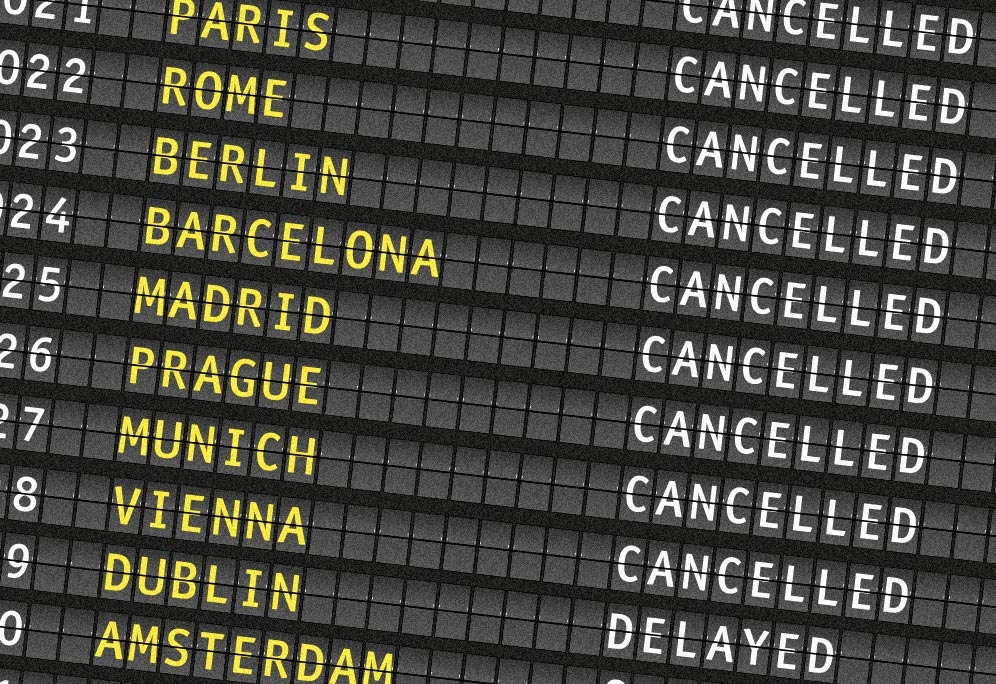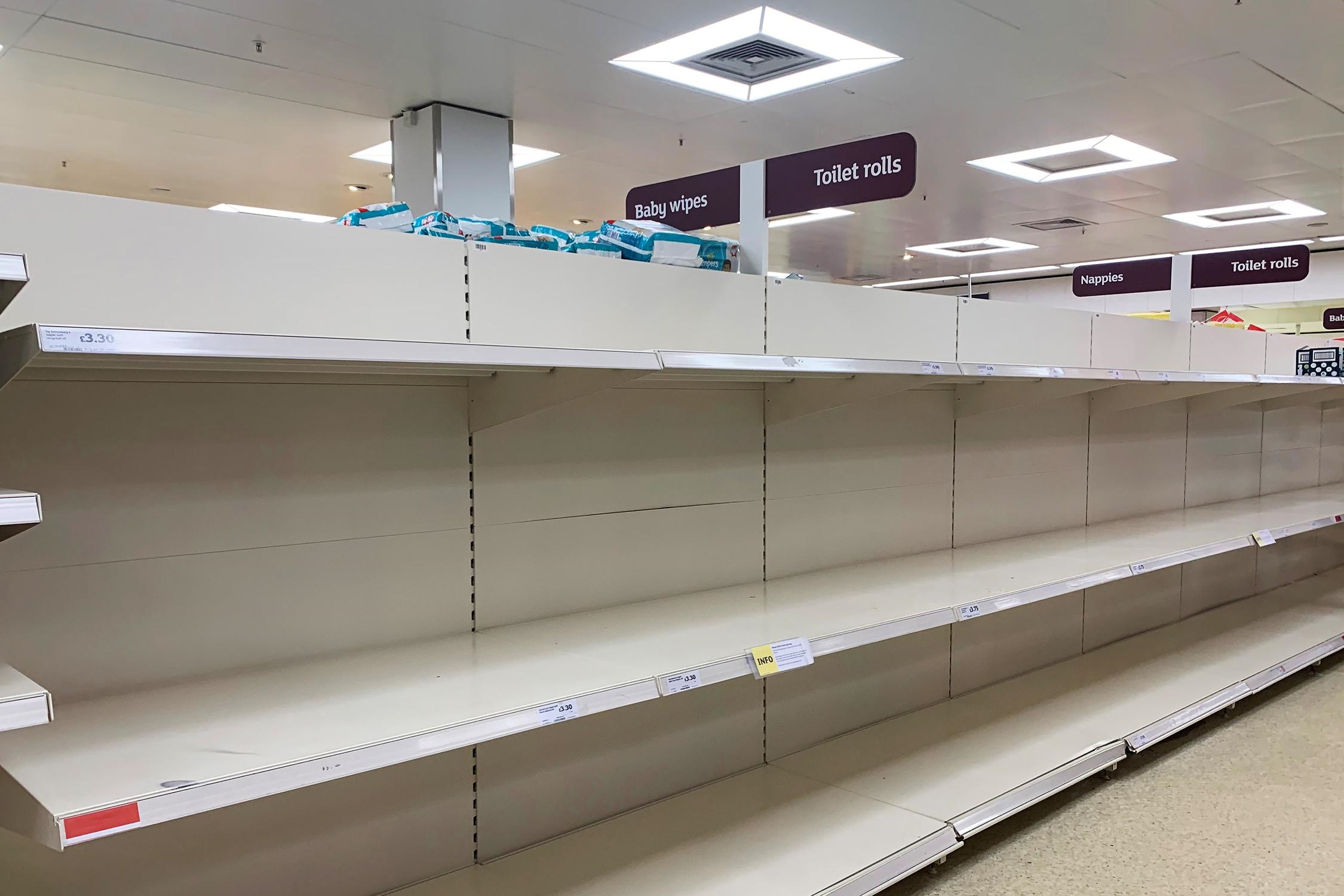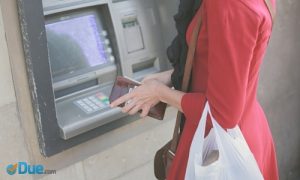
The coronavirus pandemic has changed the world in the space of just a few short weeks. From a Western perspective, those first news stories back in January of the virus taking hold in Wuhan, which many of us will have only paid scant attention to, now feel like a lifetime ago. With the virus spreading throughout the world like a forest fire, we are living through a global emergency the likes of which hasn’t been seen since the Second World War.
In this blog post, I’m going to try to make sense of what the pandemic, the lockdown and the effective shutting down of our economy means for businesses across the UK and indeed the wider world. Before I do this though, I think it’s worth taking a moment to acknowledge and try to comprehend the scale and gravity of the COVID-19 pandemic.
A Changed World

The impact the pandemic is having on individual lives cannot be understated. Whether or not your business is being seriously affected or not, we have all felt the impact on our own personal freedom from being locked down in our own homes. Many of us will also know someone who has been taken gravely ill or struck down with the virus and there are unfortunately many more deaths to come.
The bravery and pivotal role of those on the frontline also cannot be understated; from the key workers keeping the essential parts of our society functioning to the countless NHS staff exposing themselves to coronavirus every day in order to save lives – including, recently, that of our own Prime Minister.
Beyond the obvious economic consequences, this is a crisis that will have profound and long lasting ramifications for politics, geopolitics, society, culture and our collective mental health. What the world will look like after we have beaten coronavirus and when this will be, is a matter of much debate. Make no mistake, the short to medium term effects will be seismic, with most major economies predicted to plunge into the deepest recession in living memory. The ensuing global economic downturn will likely eclipse the 2007/8 financial crash and disproportionately hit the poorest and most vulnerable in our society, despite the language of some politicians misleadingly describing the virus as a ‘great leveller’.
For business, the picture is uncertain and this uncertainty will remain for some time. There will undoubtedly be winners and losers. What’s likely is that there will be more of the latter, in the short to medium term at least.
Market Evolution in Fast Forward

Coronavirus is not only uprooting and decimating long established sectors but it is changing the way we shop and consume.
We’re already seeing many small businesses adapting by embracing digital technologies in order to bring their once offline businesses online. Video conferencing and communication Apps like Zoom and Houseparty have seen a massive spike in new accounts and day to day usage. With a 400% jump in website traffic, Webinar Ninja CEO Omar Zenhom, has stated that he “always knew that this is where the future is heading, but the future just came early for all of us.”
This is food for thought, as it implies a need to differentiate between change that is being temporarily necessitated by lockdown and economic inactivity, inevitable change that is being expedited by coronavirus and change that was happening anyway.
We also have to question the relationship between temporary change and permanent change.
There is every chance that some of the shifts we’re seeing in online behaviour and business activity, necessitated by lockdown, may become the norm and could represent a paradigm shift. The more consumers go online to find the products and services they want, the more businesses will shore up their digital assets and marketing strategies, thus creating a feedback loop of online consumer activity and business adaptation. How many of these shifts in consumer behaviour remain in place after some sense of normality is returned, is of course entirely dependent on the nature of the industry in question but also the scale and duration of the lockdowns.
Another factor in this market evolution is how a crisis necessitates bold decision making and how this can break down established practice and wash away old assumptions. Many businesses owners may be encouraged by how relatively painless the move to a more remote workforce is or just how beneficial their website can be in generating new business, once they have started seriously investing in it. Many of these new business models and budgetary shifts may stick in a post coronavirus world.
The same is true of consumers, many of whom may have been reluctant to shop for certain products online but who now find themselves pleasantly surprised by the ease of the experience and therefore reluctant or less likely to return to old offline consumer habits.
In the way that the internet began to change the way we do marketing around twenty years ago, so too could this pandemic see a marked shift to more digitally focused strategies and a rejection of offline media. Unlike the comparatively gradual evolution we saw with the advent of the internet however, this evolution will be in fast forward.
The Pornography of Change

Many studies predict a huge increase in digital spend in the coming months, as parts of the economy slowly reopen, whilst others remain closed. The fact that budgets and strategies will shift to digital in the short term though, is not really up for debate; the million dollar question is to what degree consumer and business behaviour will flip back to normal in the aftermath of all this, or in some sectors whether it’ll flip back at all.
Are we overreacting to the immediacy and visceral effects of the virus? Are we in fact just creatures of habit? Is this pandemic merely a short term shock to our system and our established way of doing things will inevitably return in time? Are our business models and markets more robust than we give them credit for?
To answer these questions, it’s important to find a balance between taking the inevitable hyperbole that is floating around with a pinch of salt and not underestimating the enormity of this crisis and how deep and systemic the consequences will be.
Mark Ritson’s recent article in Marketing Week offers up a pretty acerbic takedown of marketers’ addiction to what he calls the “pornography of change”. Ritson warns that “digital marketers look into the prism of a post-coronavirus society and see the transcendence of digital, not because it will happen but because they want it to happen.”
Whilst I agree with many of Ritson’s points regarding the cognitive bias of marketers of all shades (or anyone with a vested interest for that matter), I do think he is somewhat underplaying the scale of the epidemic and its potential to engender far reaching changes, either directly or indirectly. The point on which we do agree is the ability of commentators to accurately predict what these changes will be. At the moment all we can hope for is informed guesswork.
Permanent or transitory, change is inevitable and the best way to react to a changing market is to change your marketing strategy. The companies that thrive in the next 6-12 months will be those who are bold and adaptable enough to do this sooner rather than later.
Throwing Assumptions out the Window

Some sense of predictability is crucial to running a functioning business but also a functioning economy. When this is rocked even slightly, the ensuing tumult is inevitable. Witness three years of uncertainty around Brexit (remember that?), which at the time represented a consistent source of instability for businesses, but which now pales into insignificance compared to the far reaching consequences of coronavirus.
Uncertainty must therefore now be factored into all future planning and previous assumptions thrown out the window. This requires a hedging of one’s bets and a lot of worst case scenario planning.
With a vaccine potentially 12 to 18 months away and a relatively tiny proportion of the British public having been infected with coronavirus, the realisation of ‘herd immunity’ is a distant one and the potential for lockdowns to become rolling (easing and tightening of restrictions over time) or partial (immunity passports, regional lockdowns or letting only young people back to work) is at the moment a more probably outcome in the short term. As a result, businesses should work on the assumption that the current trend towards online consumer activity will continue unabated.
It would also be reasonable to assume that much of this behaviour will continue to evolve in the short term and that some of it will stick when herd immunity and/or a vaccine is achieved. Investing in your ability to generate and run your business online, may involve a fundamental shift in approach, but it now represents the least risky option when it comes to long term profitability.
With traffic and conversion rates for websites down across many sectors it’s not surprising that the current tendency is that of batten down the hatches. With economic activity all but shut down, it’s not surprising that organic web traffic across a whole range of search terms has dramatically shifted. But it will come back when restrictions are eased and it’s those businesses that are maintaining and building upon their SEO efforts now that will see a more substantial bounceback.
Whilst we will emerge from this pandemic to a deep recession, it’s inevitable that there will also be less competition out there, so the potential rewards for those businesses who have been steadily investing in their digital presence during lockdown could be all the greater.
Getting Ahead of the Curve

Whilst some sectors are clearly doing well (FMCG, the medical sector, digital industries like SaaS providers and e-learning), let’s make no mistake that the current picture for many is uncertain at best and devastating at worst. The pandemic is necessitating an adapt or die approach and failure to do so quickly and effectively will ultimately kill many businesses.
The sad truth is that for many amazing businesses in sectors such as hospitality, travel and events there’s nothing they can do, or could have done, to survive this effective shutting down of the economy.
For those that can adapt though, the question that needs to be asked is how do I get ahead of the curve? Because, despite the debates around how and to what extent the world will change in the aftermath of coronavirus, ‘business as usual’ is just not an option anymore.
Digital & Social Articles on Business 2 Community
(67)
Report Post








